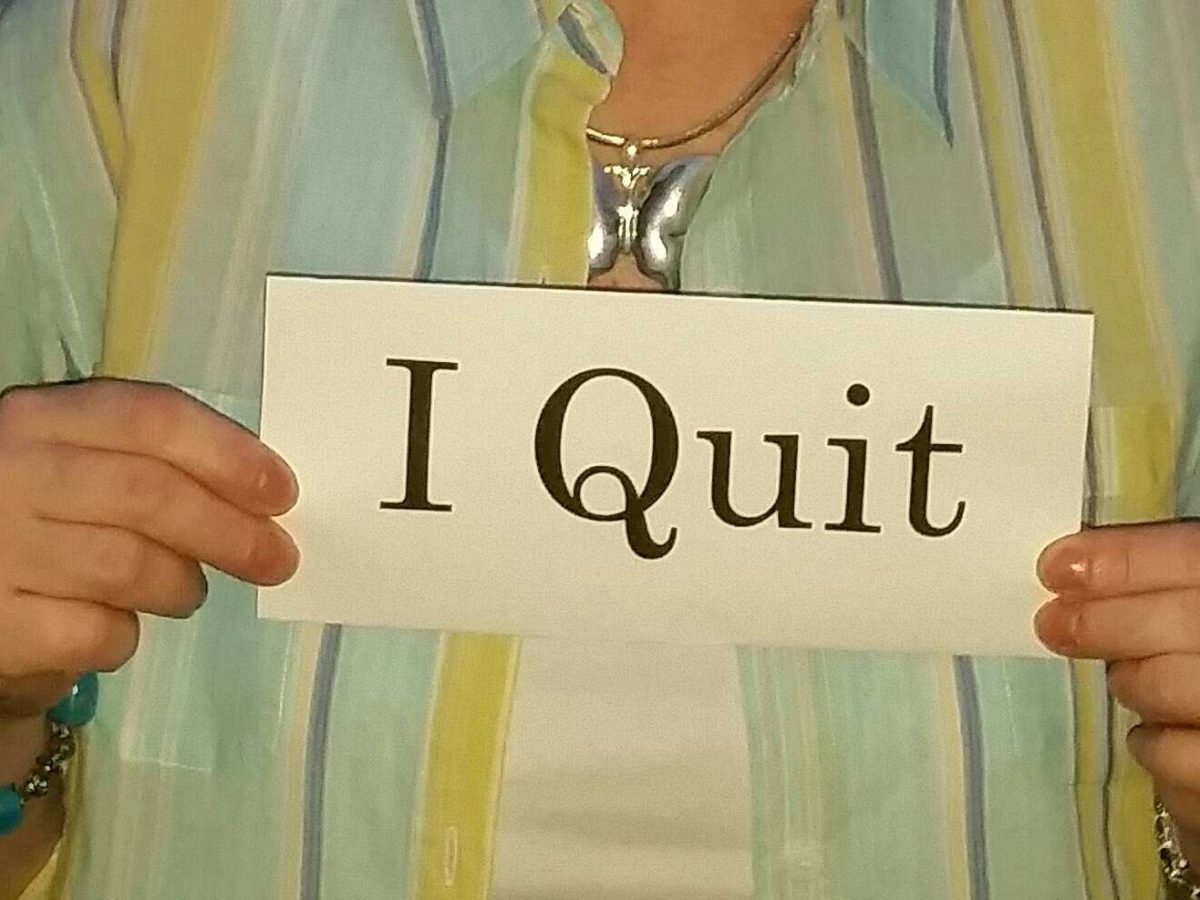8 tips for leaving work gracefully
One of the most difficult situations on your professional path is the transition to a new job. This moment comes in the professional life of almost everyone, regardless of reasons to leave— for better opportunities, inconsistent workplace culture, lack of growth, or something else.
How you leave a job is just as important as how you start a new one. This is a key moment when grace and professionalism are more important than ever. It’s time to strictly adhere to organizational norms and maintain good relations with the employer and colleagues. When you retire in a professional and graceful manner, it increases your chances of receiving positive feedback from your former manager and colleagues. You carry your reputation with you to your new employer.
Any mistake made at the critical moment of leaving a job will change everything – it will ruin the reputation earned by years of work in the company. Therefore, it is very important to quit gracefully by giving the required notice to your employer through a formal letter of resignation in accordance with the terms of your employment contract with the organization. In this way, you will help your employer to transfer responsibilities to a new employee and leave smoothly.
Here are some actionable tips on how to quit your job gracefully and help your employer seamlessly hand over the task to your replacement while maintaining your reputation.
8 tips for leaving work gracefully
Whether you’ve been with the same company for a long time or you’re a new hire, give yourself time to make sure you carefully and thoughtfully plan your exit after receiving a job offer elsewhere. You can leave your job with dignity and professionalism by doing the following:
1. Provide a professional resignation letter
Formal resignation often entails notifying your employer in person and in writing. In some cases, you will have to resign by phone or email. Many companies do not require a written letter of resignation, but some organizations do require a formal letter of resignation.
Whatever the circumstances, it is always worth sending an official resignation letter providing the necessary notice to your employer. You must be courteous and professional in your written resignation letter.
When writing your resignation letter, you must provide your employer with a formal letter that entails your decision to leave, clearly stating the following elements:
- A frank statement about your decision to retire
- Effective date of termination and notice time
- Reasons for leaving your job
- Identify unfinished tasks in your assignment
- How can you help with the transition?
- Sincere gratitude for the time spent with the organization
- Your signature as well as your contact details for future inquiries.
2. Don’t tell anyone until the new job has been confirmed.
People typically leave their current job to get a better position or preferred work environment that matches their values, or, in some cases, switch for other specific reasons. Whatever the reason for leaving your current job, it is important to check with your new employer for all the details before resigning.
Don’t quit until you’ve received a final written job offer from your new employer. If the letter says the offer is “subject to referrals” or any other conditions, wait until this step is also confirmed until you leave your current job. This way you will ensure a smooth transition without any notification issues.
3. Make Sincere Efforts During the Entire Notice Period
Whatever notice period required by your contract, if you want to keep your reputation intact, make sure you maintain a professional attitude for the rest of your time with the company. No matter how great an employee you have been over the years with the company, ending is what is remembered the most. So make sure you leave after a positive final stretch.
The notice period may vary depending on your role and the needs of the organization or industry regulations. If you cannot find this information, you should contact your Human Resources department. If the role is demanding, for example if you hold a particularly important or unique position, you should consider providing more notices than necessary.
You must act professionally to complete all the tasks associated with them in a timely manner and try to complete the unfinished tasks – this will solve the transition problem and streamline the project files to make the future path of your successor smoother. Be sure to document typical processes to make them easily accessible and convenient for your replacement.
The effort you make during the notice period will be valued over time. In some cases, your services will be terminated immediately after you submit your resignation letter – in such circumstances, you may be asked to leave the office after you have formally submitted your resignation letter.
4. Offer to train your successor
Leaving work requires a smooth transition of tasks and projects that you have been involved in at the workplace for a long time. To ensure a smooth and graceful transition, you may need to train and mentor your replacement. Assistance in training a replacement will help ensure a smooth transition and take some of the burden off your boss and team.
Whenever an employee decides to leave their current position in the company, changing staff in that particular role is always stressful for both the manager and the employer. In such cases, either your colleague fills in the gap to fulfill the duties, or a replacement is appointed to continue the role. In both cases, it is difficult for the employer and your manager to immediately find a candidate suitable for your role, and you need to offer training for your colleagues or replacements.
Make a list of your top priorities and include all the tips you’ve received along the way. You must provide this information to your manager to help with adjustments, or if your notice period is extended or you plan to stay long enough, you must pass it on directly to your successor.
Give your team members up-to-date information on the progress of your projects if you haven’t found a replacement yet.
5. Transfer of company property
Make a list of the company items you currently own. Your smooth exit entails handing over property to your employer or the relevant departments before you leave your job, and getting the NOC from the relevant departments and finally passing it on to Human Resources would be a thankful move on your part.
If any items are damaged during your assignment with the company, repair them to the condition you received them in before you hand them over. Also, make it a point to delete all your files from electronic gadgets before transferring them.
Make sure all company property is returned before your last day of work. You must do this in order not to lose favorable recommendations, awards and, in some cases, career opportunities in the future.
6. Tell your close colleagues in person
When you work for an organization for a long time, and sometimes even for a shorter period of time, you develop close working relationships with your colleagues. You obviously don’t want your boss to know about your imminent departure from someone else, but at the same time, you don’t want these close colleagues to know about your departure at the last moment. Their workload will most likely be affected by your departure, so be sure to share your plans with colleagues when the time comes.
It is always a pleasure to inform your colleagues of your decision to move on after you have formally discussed and informed your manager and HR. Personal communication about your decision to quit is always the way forward: thanking your colleagues and your boss in particular will be considered a noble act of you. You can also exchange personal contact information with colleagues you wish to keep in touch with. LinkedIn is a great way to keep in touch with your personal network of colleagues and associates after you’re gone.
7. Tidy up your workspace
Clean up your workspace and leave it and any equipment you use in immaculate condition. We’ve all been trained in feedback systems to do this with airbnb these days, apply the same principles when moving to another job.
Make sure you don’t leave any sensitive information – pass it on to your manager or Human Resources. Make sure you return external drives and devices containing important information related to your work – make sure these things are used correctly.
Remove personal items from your locker, desk, and nearby areas.
Organize work files so your colleague or successor can quickly find important documents and other data.
8. Prepare for the final interview
exit interviews usually conducted to find out why you left your job, how satisfied or dissatisfied you are with the company, and what you think needs to be done to improve it. The exit interview, which is usually conducted by the Human Resources department during your notice period, is your employer’s attempt to find some useful ideas, gaps, information, and other valuable data that will help them overcome those gaps and focus on becoming a better employer.
You must provide accurate feedback to help your employer grow, and never be biased – be discreet and express an honest and fair opinion based on your experience. It’s fair to comment candidly about work culture, pay, and benefits.
To sum up the vital tips for leaving work gracefully
One of the key moments in your career is the decision to leave your job and work with a new employer. Although this decision should be made after considering many factors, it is very important that you leave in a way that does not interfere with your future professional path in any way.
When you decide to retire, make sure you plan for a smooth transition. You may have the next step in your career, but you don’t know what’s in store for you in the long run and when the opinion of your previous colleagues might be critical. Take care of your reputation, in any career it is the most important asset you have.







